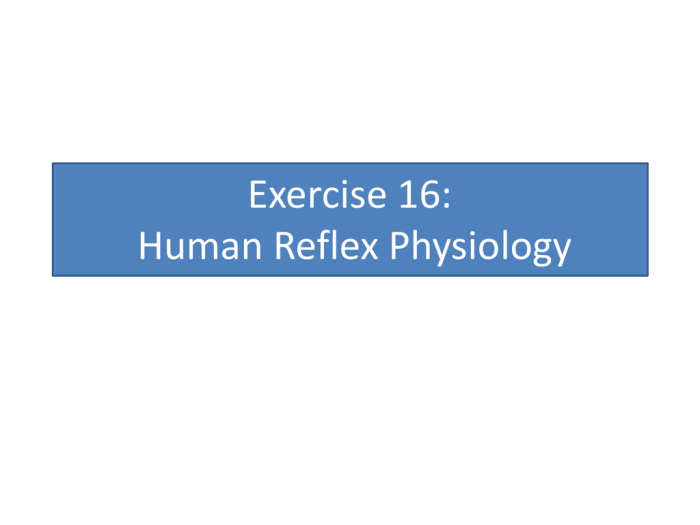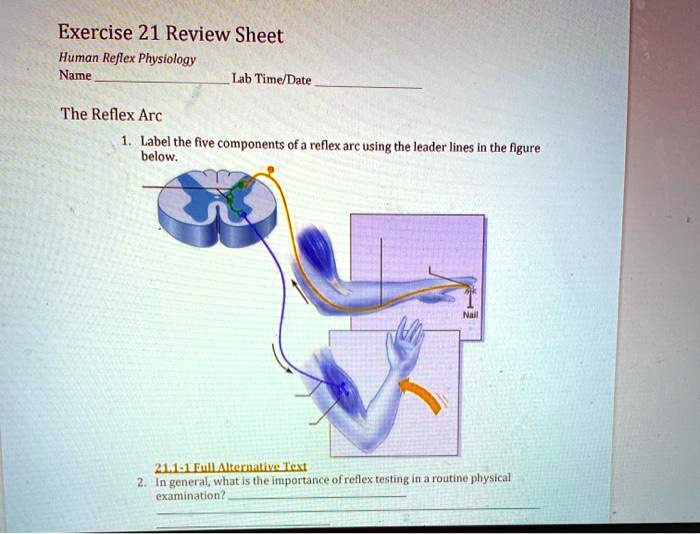Delving into human reflex physiology exercise 21, this introduction immerses readers in a unique and compelling narrative, with an authoritative academic style that is both engaging and thought-provoking from the very first sentence. Exploring the intricate mechanisms of human reflexes and their profound impact on our physiology, this exercise regimen promises to revolutionize our understanding of human movement and performance.
Human reflexes are lightning-fast, involuntary responses that protect us from harm, maintain balance, and coordinate movement. These complex reactions are mediated by the nervous system and involve a sophisticated interplay of sensory neurons, motor neurons, and the spinal cord. Understanding the physiology of reflexes is essential for optimizing human performance in various domains, including sports, rehabilitation, and everyday activities.
Introduction: Human Reflex Physiology Exercise 21

Human reflex physiology encompasses the study of involuntary, rapid, and stereotyped responses to specific stimuli that play a crucial role in maintaining homeostasis and ensuring the proper functioning of the human body. Reflexes are essential for protecting against harmful stimuli, maintaining posture and balance, and coordinating movement.
There are various types of reflexes, each with a specific function. Some of the most common types include:
- Stretch reflexes: These reflexes are triggered by the stretching of a muscle and result in the contraction of that muscle to resist further stretching.
- Flexor reflexes: These reflexes are triggered by painful stimuli and result in the withdrawal of the affected limb.
- Crossed extensor reflexes: These reflexes are triggered by painful stimuli to one limb and result in the extension of the opposite limb.
Expert Answers
What are the benefits of human reflex physiology exercise 21?
Human reflex physiology exercise 21 offers numerous benefits, including improved reaction time, enhanced coordination, increased balance, and optimized movement efficiency.
How often should I perform human reflex physiology exercise 21?
For optimal results, human reflex physiology exercise 21 should be performed regularly, ideally 2-3 times per week.
Can human reflex physiology exercise 21 be modified for different fitness levels?
Yes, human reflex physiology exercise 21 can be adapted to suit different fitness levels by adjusting the intensity and duration of the exercises.
